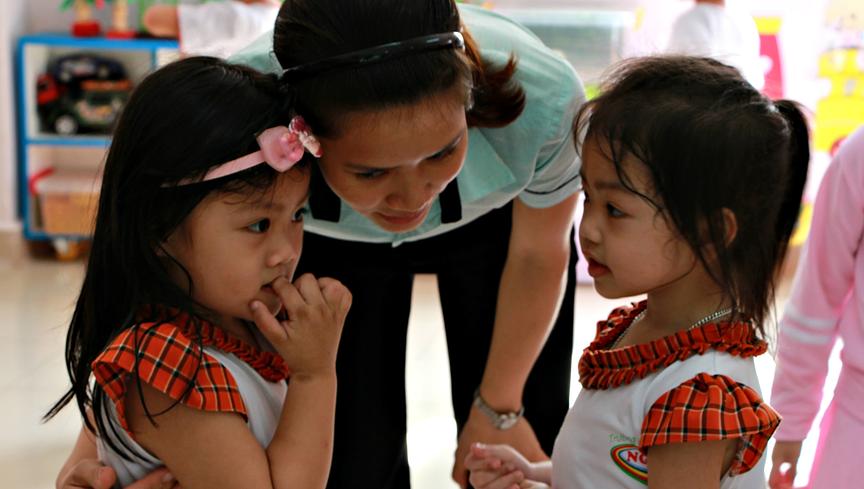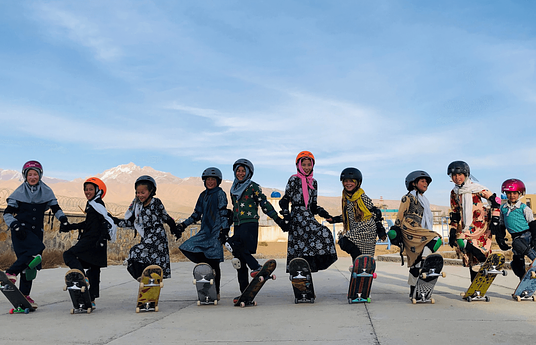Early Childhood Education (ECE) classrooms in Vietnam remain mostly teacher-centered and many find it difficult to meaningfully engage their learners or notice barriers to learning, such as the language barrier experienced by some emerging multilingual students. POM was created to provide teachers with a tool to analyse and mitigate those challenges and improve student outcomes.
Process-Oriented Child Monitoring (POM) (Laevers et. al., 2012), is a formative assessment tool used by VVOB in professional development programs for ECE teachers in Vietnam. Using two 5-point scales, ECE teachers systematically observe and assess all learners 'Wellbeing' (WB) and 'Involvement' (INV), using a simple paper-based or app-based tool. Based on this assessment, teachers identify children's levels of WB and INV, reflect on their own teaching practice, and on what withholds children from learning and meaningful participation. Teachers reflect individually and as a team and are supported by their school leaders and education officials. Using 8 action points based on experiential learning, teachers facilitate changes in teaching to increase children's WB & INV. Evidence from 3 provinces in Vietnam shows that using POM leads to increases in a range of child development outcomes, including cognitive, health behaviour and socio-emotional development (Lenaerts et.al, 2021).
POM was developed at the Center for Experiential Education at Leuven University, Belgium, and has been used by VVOB in Vietnam since 2016. Following a successful pilot in 2016, POM was initially implemented at scale in 3 provinces of Vietnam as part of VVOB's 2017-2021 BaMi program, reaching 2,879 ECE teachers, 47,267 children. POM implementation in BaMi was expanded to 6 additional provinces of Vietnam, reaching 104 teachers, 3,120 children.
POM is now the starting point of VVOB's 5-year TALK program (2022-2026), targeting another 3 provinces of Vietnam, reaching another 2,184 teachers, 48,353 children. Currently, in 2025, The TALK programme is moving towards complete update pf POM in the 3 provinces, with the government taking the lead on rolling out the teacher training. Moreover, the POM materials have been endorsed by the Ministry of Education of Vietnam and are available for teacher professional development nationally.
POM is being used now as the basis for VVOB's early childhood programmes. The current programme, TALK, is investigating how POM can be tailored in order to strengthen language and emergent literacy skills of ethnic minority children in Vietnam. Moreover, adaptations have been made to the length of the trainings in order to best fit the governments needs in terms of national scaling.
As a simple, but highly effective formative assessment tool, POM is easily transferable to other contexts. While implementing, teachers need to be supported by school leadership and the education system on developing reflective practices and concrete action points for changes to classroom practice. You can contact Hans De Greve (hans.degreve@vvob.org) for more information.



